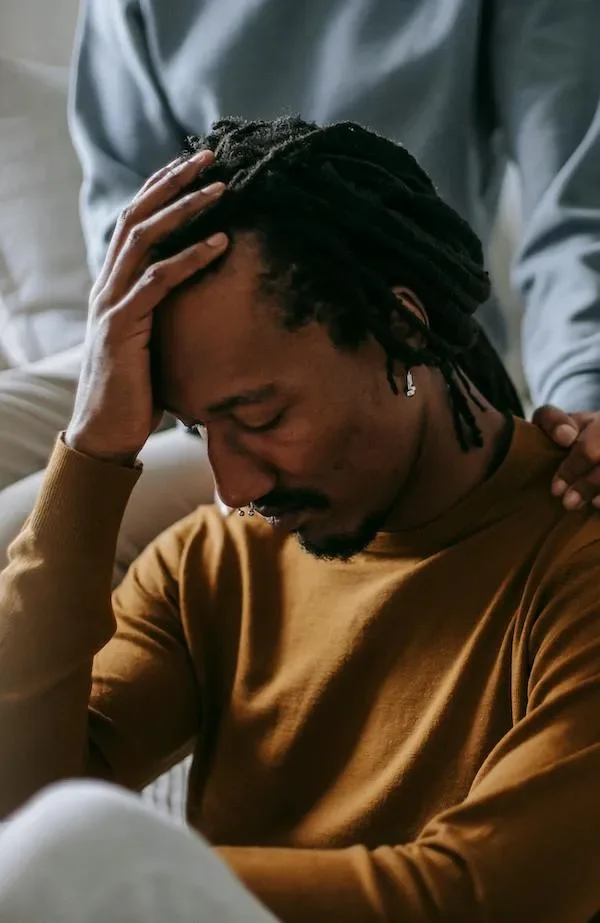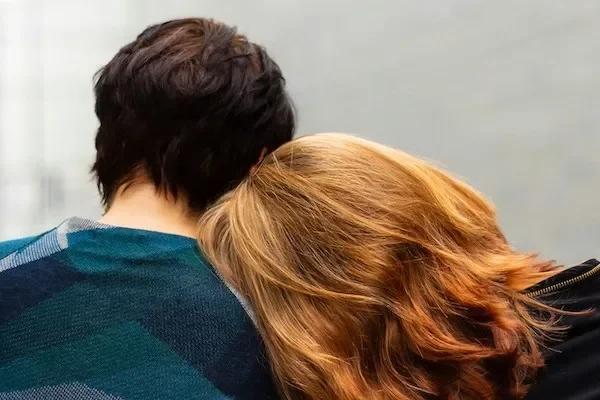
Grief Counseling
in Point Pleasant
Has Life Become A Struggle After Going Through A Loss?
Have the mental and physical symptoms of grief taken a toll on your daily life?
Do you feel depressed and have a hard time finding pleasure in activities you previously found enjoyable?
Are you often overwhelmed with anxious thoughts that leave you feeling like something could go wrong at any moment?
If you recently suffered a loss, you might also have physical symptoms like gastrointestinal discomfort, headaches, and aches or pain throughout your body. Moments of confusion or memory loss, or an overall difficulty with concentration, might be making things difficult as well.
Do you wonder if grief counseling can help you understand what you are going through and navigate how to live your life during this time of transition?
Grief Can Manifest in Every Aspect Of Your Life
Symptoms of grief can arise after the loss of many different things in your life, including a person close to you, or after a significant change that leaves you unsure of where you fit into the world. The uncertainty ahead can be daunting, and it's understandable to feel afraid.
People experiencing grief usually find it challenging to keep their regular routines and habits in place. You might struggle with maintaining healthy relationships or find it hard to be around others for fear of displaying your emotions.
A significant loss can feel overwhelming, as though the air has been knocked out of you, and you might question everything in your life. In these moments of profound grief, it’s essential to have support. Our grief counseling service is designed to walk alongside you, providing a compassionate space to process your feelings, share your experiences, and begin to find a pathway toward healing.
Questions about Grief Counseling? Contact us today.
The Grieving Process Is A Normal Part Of Life
Everyone goes through losses in life, as it is a part of the human experience. While experiencing grief and loss is a deeply personal journey, the five stages of grief are still the benchmark for understanding the complexities of what we go through. This includes:
Denial - we have difficulty believing the loss occurred or feel in “a state of shock.”
Anger - we are infuriated by the loss, and/or events surrounding it.
Bargaining - we try to explain the situation to ourselves with “if only” statements- “second guessing.”
Depression - we experience signs of depression, including fatigue, hopelessness, and sadness
Acceptance (or Integration) - we accept the loss that occurred and navigate life with our new reality.
If we aren’t going through the process, we might be stuck with complicated emotions about who or what we lost. We might get stuck in anger or guilt, which creates other symptoms like those of depression or anxiety. The feelings and stages of grief can be confusing, and a therapist can help make sense of them. Healing is not a linear process, but often occurs in cycles.
Grief Can Surprise Us With Unsettling Feelings
We might think we have moved on, but then we are confronted with intense feelings seemingly out of nowhere. Grief can be likened to a tide or an unexpected storm that leaves us thinking we were doing just fine, only to end up surprised that we got soaked or caught in a flood.
Unexpected moments of grief, while difficult, are a natural part of the process. Seeking grieving support during these times can provide valuable assistance in navigating the complexities of change. While grief can be difficult, it also serves as an opportunity for growth and self-discovery.
Grief Counseling Can Support You Through Your Loss
If you’ve found yourself here because you’ve just experienced a painful loss, first, let us tell you we are sorry. Grief and loss often come with a profound sense of isolation and overwhelming emotion, and this period can be especially challenging when you feel there’s no one to turn to for support.
At Marin Integrative Therapy, our compassionate and experienced therapists are here to provide you with the support you need through our welcoming Point Pleasant, NJ, office.
We Offer A Safe Space For You To Explore Your Experiences
It's important to acknowledge that feelings of sadness are understandable and to be expected, but you can also embrace the potential for growth and transformation. Our tailored approach combines integrative therapeutic techniques to help you process your emotions, find healthy coping mechanisms, and work toward healing.
Talking to a counselor about how you are processing your grief can help cultivate a deeper understanding of your emotional landscape, allowing you the grace to mourn what is left behind while simultaneously celebrating the positive strides you are making in therapy. Ultimately, the journey of personal development is a balance of letting go and welcoming in, and both aspects are vital to the holistic healing process.
We Have Broad Experience With The Bereavement Process
With extensive backgrounds in hospice and healthcare, we fully comprehend the complex emotions tied to loss, such as emptiness, anger, despair, and confusion. Kevin has served as the Bereavement Director at a hospice agency, gaining invaluable insights into the grieving process.
Beth has facilitated numerous bereavement support groups, dealing with both sudden and gradual losses, and is a certified pet loss counselor. Our experiences have taught us the importance of being present with individuals during their most challenging times, allowing us to better assist you in your journey.
In grief counseling, we utilize cognitive behavioral therapy (CBT) and other approaches to aid with looking at your emotions and processing them in helpful ways that encourage your growth and stability in the grieving process. We can address what is bothering you, what you are afraid of, and any negative thought patterns you have developed. Acceptance and commitment therapy (ACT) can also help with integrating the final stages of grief, assisting you with keeping sight of your values and goals for the future.
By honoring the emotions tied to our past, we can make way for the new experiences that await, fostering resilience as we navigate the bittersweet nature of change. Through grief counseling, you can better understand your bereavement process to let go of what isn’t serving you, while honoring your loss so that you can move forward to live the joyful life you deserve.
You Might Still Have Questions Or Concerns About Grief Counseling…
-
While you may feel intense pain now in the grieving process, or conflicting emotions that seem insurmountable, those feelings can subside, and seeing a counselor can help you achieve that. Even when you start feeling better, you may experience a new conflicting issue with letting go, almost like moving on would be disrespectful to your lost loved one.
This is not a bad thing, or something to be afraid of. Express your grief when you are feeling it. Ride the wave of emotions while it lasts, and you will figure out how to move forward with your life at the same time.
-
Sometimes people think they make too big a deal about their grief, or conversely, they worry they should be feeling more than they do. This reflects more about the complicated feelings you may have about your relationship with the person who passed away. Having a safe, confidential outlet through counseling is helpful during the grieving process to navigate these complexities.
-
Yes, you can. We will never tell you that you can’t. What we can say is that this is a difficult process, and it isn’t uncommon for many people to reach out to us for counseling during their time of grieving.
Some individuals choose to do just a few sessions, while others seek longer-term support. It really depends on how much you want to work on your own or desire assistance as you navigate through your feelings. Many individuals find that having support helps them immensely.
Reach Out For Compassionate Care During Your Time Of Loss
Don't face this difficult time alone. Reach out to us today to learn more about how grief and loss counseling can assist you on your path to recovery. Reach out to us at 732-267-0860 or through our contact page to begin.
RECENT POSTS

Grief Counseling in Point Pleasant, NJ
2200 River Rd suite c,
Point Pleasant, NJ 08742








